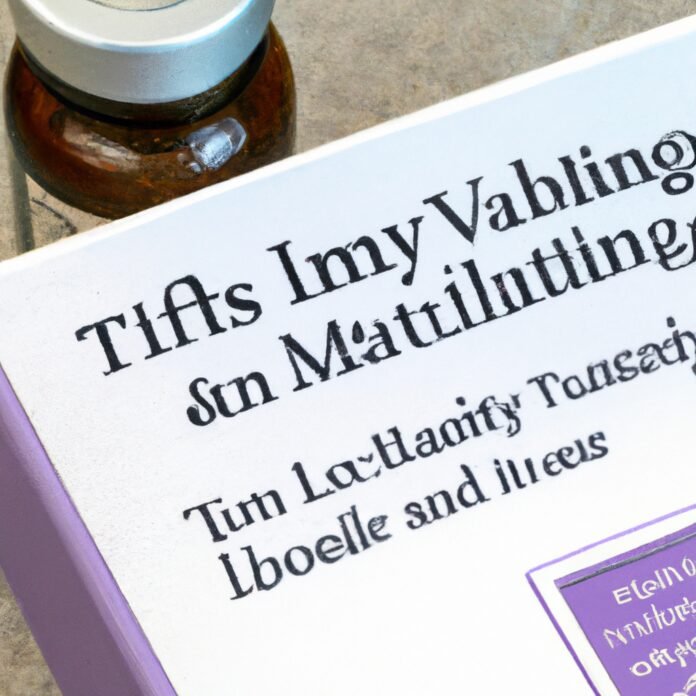As we age, our immune systems become less reliable in tackling illnesses. Vaccines provide a valuable tool in protecting the elderly against infection and can greatly enhance the quality of life in later life. This article looks at how vaccines provide elderly people with immunity, and the various benefits that come along with them.
1. Strengthening Senior Immunity – Why Vaccinations are Vital
As the body ages, its capacity to fight off disease and infections becomes weakened. And with the threat of numerous illnesses in the atmosphere, it is becoming more and more important to protect seniors in their golden years. Vaccinations serve as one of the best ways to keep the elderly safe.
Vaccinations work by teaching the body to recognize and destroy any virus, bacteria, or other microbes. It creates an artificial immunity that can last for many years, providing seniors with protection against many common illnesses.
Here are some of the important vaccinations that seniors should get:
- Influenza: Prevents the flu
- Tetanus: Protects against life-threatening infections
- Pneumonia: Protects against the deadly lung infection
- Shingles: Reduces the risk of severe nerve pain
Vaccinations are also vital for elderly individuals who travel or move to different climates. As they enter a new region, they need to be ready to face any possible threats that come their way. Many of these illnesses can be avoided with the right vaccinations.
2. Vaccination Guidelines to Improve Immune Defense for the Elderly
As age sets in, the immune system of the elderly begins to diminish, leaving them more susceptible to diseases. Therefore, vaccination is an essential element in improving immune defense for the elderly. Following are some important guidelines in this regard.
- Get Vaccinated Annually: The elderly should be vaccinated at least once every year. This helps increase the body’s immunity capabilities. It’s recommended that an adult over 65 years should receive a flu shot annually.
- Be Up-To-Date on Vaccines: Elderly individuals should always consult their doctor for the right type of vaccine for their age. They should also make sure to complete the entire duration for receiving the vaccine as prescribed by the doctor.
- Know the Side-Effects: Some minor side-effects are common after receiving the vaccine. These can be nausea, headache, fever, etc. Certain vaccines could have higher risks of side-effects, and it’s vital that the elderly know this before getting the shot.
Finally, it’s just as important to revamp lifestyle habits and create a balanced diet plan, in order to further improve immune defense. These include having an adequate sleep of at least 8 hours, regular physical activities such as walking everyday, and eating a balanced diet of fruits, nuts, and vegetables.
3. The Effects of Age on Vaccination Response
Age is a key factor in determining a person’s response to a vaccine. Vaccines target the body’s immune system to produce a protective response, but the effectiveness of these vaccines can vary significantly depending on a person’s age.
Younger people tend to have stronger immune systems than older people. Therefore, when given a vaccine, those in childhood or adolescence generally experience a more robust immune response than those in adulthood or elderly. As a result, those aged 18 and below typically produce more antibodies against the target disease than older adults after receiving a vaccine.
Conversely, adults aged 65 and above tend to produce fewer antibodies and show a weaker response to certain vaccines. There are several reasons for this, including:
- Lower natural immunity
- Decreased responsiveness of the immune system
- Impaired ability of the body to produce an appropriate response to vaccines
This means that elderly adults may require boosters of certain vaccines to maximize their protection from particular diseases. Vaccines given at older age can also be less effective in providing long-term protection. It is recommended, therefore, that elderly adults receive regular check-ups to keep track of their vaccine needs.
4. Boosting Elderly Immunity with Vaccines
As a person gets older, they become more susceptible to a variety of illnesses due to their weakening immune system. Yet, many senior citizens are hesitant about getting vaccinated against preventable diseases. This caution is understandable, as there has been confusion about the vaccines available for older adults, from flu shots to shingles and more.
Though elderly age always carries a greater risk for serious infections, there are many ways to best boost immunity through vaccines. With the right education, senior citizens can be assured that getting vaccinated is a great way to remain healthy. Here are some tips for seniors to consider when it comes to immunizing:
- Know the risks: Before getting any kind of vaccine, it’s important to understand the risks involved. Talk to your doctor about any potential side effects you may experience.
- Understand your current health situation: Vaccines are not only protective but also preventive. Talk to your doctor to find out which diseases are the most likely to affect you, and get those vaccines.
- Know the benefits: Vaccines provide protection. They also provide immunity, and in turn can reduce the amount of time you may have to spend away from work or social engagements.
At the end of the day, vaccines are your best bet to remain healthy in your elder years. With clear guidance and accurate information, you can make the most out of the available vaccinations and give yourself the best risk of staying healthy and happy.
5. How Vaccinations Encourage Better Senior Health
Senior citizens have an increased risk of contracting illnesses due to their weakened immune system. Vaccinations are an integralpart of a senior’s healthcare regimen. The ability to stay up-to-date on necessary vaccines is important for their long-term health and wellbeing.
Here are some ways that vaccinations provide better health for seniors:
- Increases immunity against illnesses, including potentially fatal viruses or bacteria
- Lessens the severity of symptoms if they do become ill
- Puts less strain on the body, reducing the risk of other related health problems
Vaccinations are especially important for seniors at risk for complications due to other illnesses or conditions, such as diabetes, heart disease, lung disease, or cancer. It is important that they are up-to-date on their vaccinations to protect their health and reduce their risk of illness.
Seniors should speak with their doctor to determine which vaccines they should receive and when they should receive them. Getting the recommended vaccines can help seniors maintain better general health and wellbeing.
The promise of vaccines for the elderly is clear – improved immunity and protection from diseases that can diminish quality of life. Taking the time to invest in vaccine care is a proactive way to ensure health and wellbeing well into later life.




